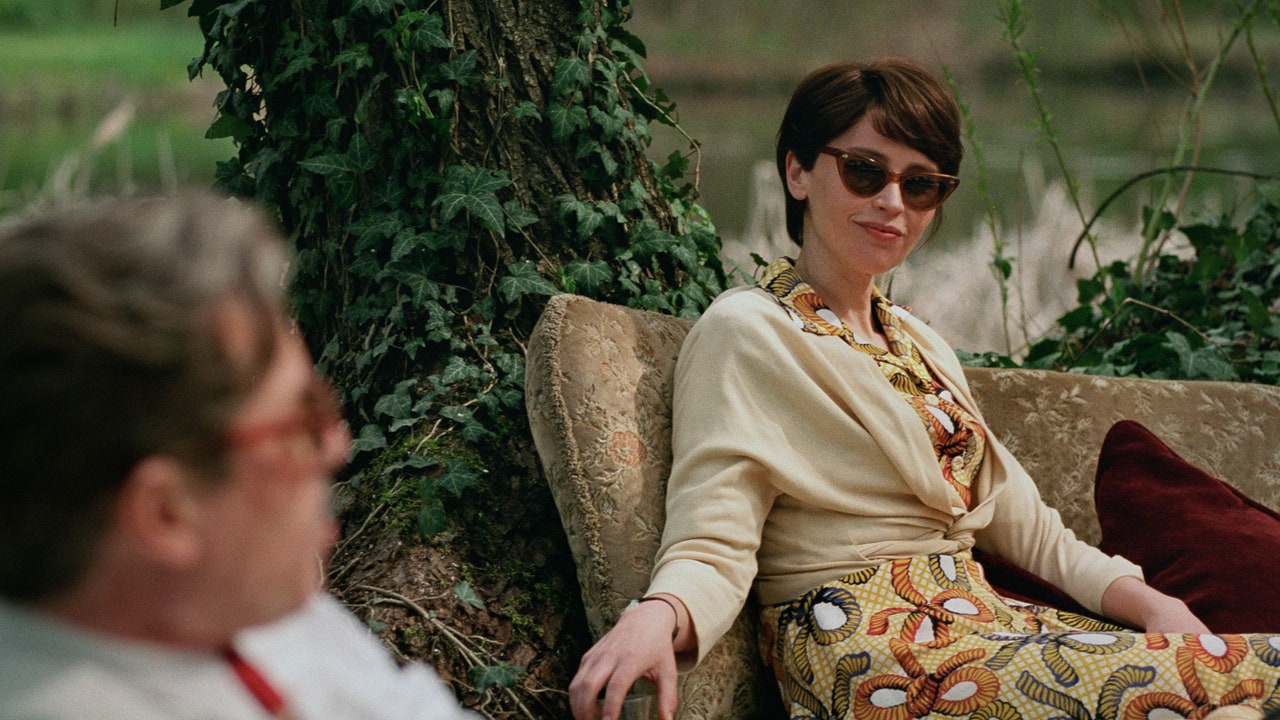Felicity Jones usually takes a long time to decide whether she’s going to sign on to a project. Not so for The Brutalist: “It was such a rare moment
Felicity Jones usually takes a long time to decide whether she’s going to sign on to a project. Not so for The Brutalist: “It was such a rare moment of feeling 100% in something from the very beginning to the very end,” she says during a recent Zoom call.
For what it’s worth, Jones doesn’t physically show up until after Brady Corbet’s three-and-a-half-hour epic has its intermission. But her presence reshapes the story of Adrien Brody’s László Tóth, a Hungarian architect who comes to America after surviving the Holocaust. As his wife, Erzsébet, Jones plays a woman in extreme physical pain due to the malnutrition she suffered in the camps. But despite her disability, she maintains a keen, ferocious spirit. A journalist before the war, she pushes László and his pursuit of artistic greatness while remaining hawkish about the exploitation he’s enduring at the hands of industrialist Harrison Lee Van Buren (Guy Pearce).
In an interview, Jones discusses the vastness of the film, studying her character’s Hungarian accent, and Erzsébet’s surprising “badassery.”
Vanity Fair: What was your initial reaction to the magnitude of this film?
Felicity Jones: I read the script. It had black-and-white pictures in it. It had pictures of real people. Even that picture in the interval that you see of Adrien and I on our wedding day, that was taken from a piece of archive—two people on their wedding day, a very expressive, intimate picture. First of all, you thought [the film] was based on real people, because it had such a feeling of authenticity about it, and it had all these wonderful technical aspects to it. Even at the level of reading the script, it felt as though Brady and Mona [Fastvold] had written something that was really pushing the conventions of cinema. It feels like audiences are really luxuriating and enjoying something that is so committed to being long-form. I mean, it feels so novel in its nostalgia for cinema in some ways.
Where did you start in your prep process?
Obviously, you hear Erzsébet in the first half [of the film]. In many ways, she haunts the opening half because you feel her presence very strongly—but you don’t actually meet her in person until the second. What was really significant is, in that moment that you first meet her, you are aware of the trauma that she has gone through without it ever being overtly stated. I felt my biggest challenge on every level with all the technical aspects of the character—the accent, speaking Hungarian, her physicality—was to make everything feel as effortless as possible. When we first meet her, she’s very faint physically. Throughout that second half of the film, you see her health improving. We know she has the mental strength at the very beginning of that first half, but by that moment when she confronts Van Buren, you see her in full force—taking on this man who she really felt at the beginning was not good news.
It almost comes as a surprise, even though it shouldn’t, how astute she is.
Well, you’ve waited so long for her that you feel like she’s got to make an impact. I felt instinctively with Erzsébet that she’s a bit like the train that she arrives on: She’s only going in one direction, and that’s forward. She has a great optimism, and she can sense that Van Buren is a troubled, complicated man, but she doesn’t want to let that get in the way of them being successful. They’re both artists; they both have an enormous amount of artistic integrity. But I think Erzsébet is a pragmatist, and sh’’s going to adapt and do what it takes until the moment that she just can’t adapt anymore.

COMMENTS